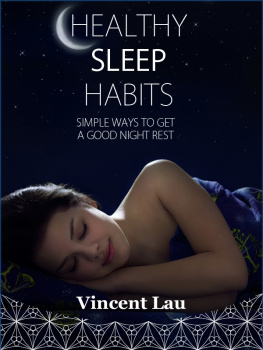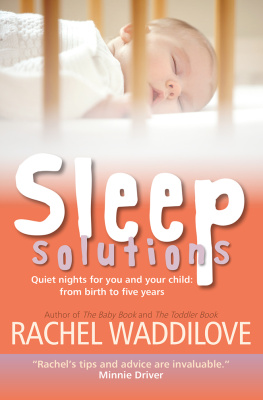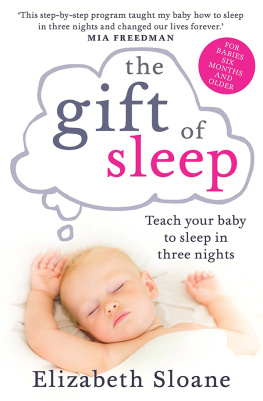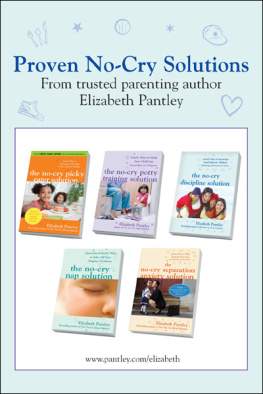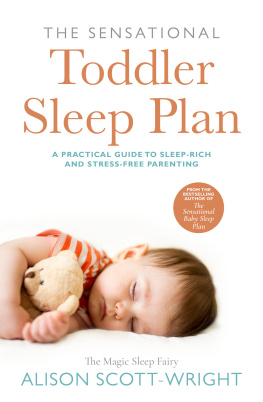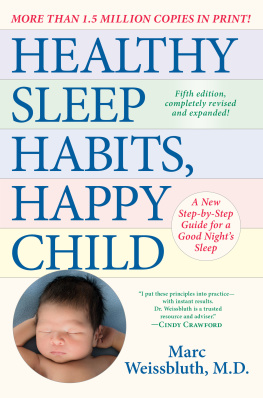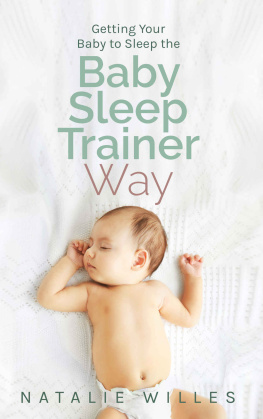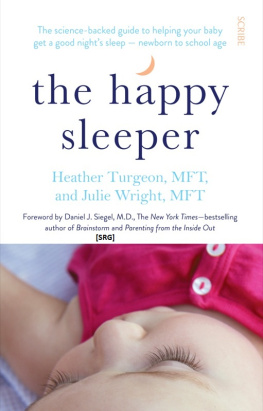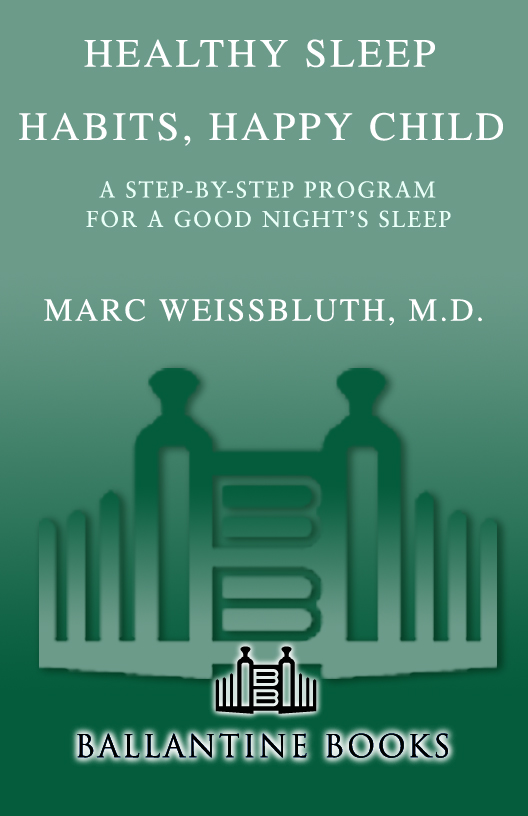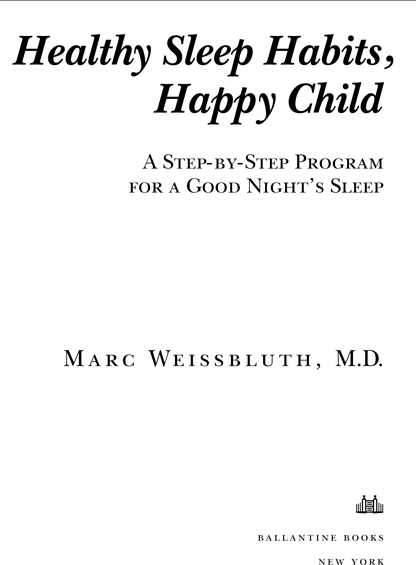A friend recommended this book to me when my first child, Presley, was seven months old. I was still nursing, but getting ready to stop, and definitely ready to stop the 4:00 A.M. feeding. Also, we had let Presley get into the bad habit of only wanting to nap on someone. This was great when I needed an excuse for a nap, but not so convenient on busy days.
I devoured the book in a matter of hours and put the principles into practice immediatelywith instant results. I especially liked how Dr. Weissbluth taught me to watch out for my child's sleepy signs and then encouraged me to get him to bed before he's overtired. I was also very comforted by Dr. Weissbluth's explanation of sleep as one of your child's basic needs. You offer healthy food to your child when she's hungry. You must also offer healthy sleep when your child is tiredeven if she doesn't know it or thinks she doesn't want it (just like my kids won't usually choose the vegetable!).
Dr. Weissbluth, thank you for being a mentor and friend. I wish I could say my kids never wake up at night or always go to sleep without a power struggle. We have our ups and downsI guess that's parenthood. But what I do have is a structure for sleep, which we're always trying to get back to after traveling or a cold. It really helps to have that and to know it worksespecially when you are bleary-eyed at 2:00 A.M. I love Dr. Weissbluth's philosophy that the most important thing to have is a well-rested family. And fortunately, thanks to Healthy Sleep Habits, Happy Child, most days (and nights) we do!
 How to Use This Book
How to Use This BookIf you are still pregnant, it is important for both parents, not just the mother-to-be, to read the Introduction and Chapters 1, 2, 4, and 5. Try to read all of this before your baby is born because no matter how tired you may feel now, you will be even more tired once your baby has arrived. Trying to read anything then is difficult, to say the least. In these chapters you will gain an understanding as to why healthy sleep is valuable, how to satisfy your baby's need to sleep, how to cope with fussiness or crying in the evening, and how to prevent sleep problems.
If you have already delivered your baby, it is likely that you are exhausted, feeling a little lost, or both. Shortly after the birth, you may have baby brain and be unable to concentrate, focus, or develop a plan of action because you are so sleep-deprived. And if you are breast-feeding, it is possible that you feel physically drained. It is absolutely necessary for husbands, who never have baby brain, to read portions of this book and to act as a coach for their wives. First, even if your baby was not very fussy or crying much in the evenings, please read Chapter 4, because all babies have some fussiness. Then go to the sleep problems discussed in Chapter 3; first read about the problem and then consult the Action Plan for Exhausted Parents. Finally, read the Action Plan for Exhausted Parents in the chapters before and after the chapter for your child's age, because chronological age is only a rough guide both for sleep problems and their solutions. If your child has snoring or mouth breathing during sleep or has very dry and itchy skin, read the appropriate sections in Chapter 10 or 11.
 Introduction
IntroductionWhy won't my child sleep better? Where does he get all his energy? He really never seems tired; he just goes and goes and goes until he crashes. I'm burned out and I know he must be exhausted. Of course, he never slept well, even when he was a baby. He was up at all hours during the night, every night. Naps? Forget them. Sure, he took catnaps, but only in my arms or in the car. I just thought it was normal because no baby wants to sleep with so many interesting things going on around him. Anyway, I didn't want to hear all that crying when he didn't want to sleep. But now he's two, and I'm getting tired of those constant bedtime battles. There are times when I wish he would simply just settle down and be less wild.
Sound familiar?
All kids occasionally are firecrackers when things are not going their way. But why do some kids have much shorter fuses than others?
Healthy Sleep Habits, Happy Childwill explain how fatigue caused by poor-quality sleep makes some children pop off more often or explode with more force than others. It will also explain how chronic fatigue can reduce your child's ability to succeed in school. This book will show how you can nurture, enhance, and maintain calm and alert behavior in your child by instilling good sleep habits.
I will lead you on a tour through the shadows of your child's night and shine my flashlight on the most frustrating nocturnal problems that can disrupt sleep. The first leg of our journey covers terrain that may not be familiar even to experienced parents. Part I, How Children Sleep, describes healthy sleep, disturbed sleep, sleep problems, and common myths about sleeping. It also covers some sad territory that has not been explored previously: the harmful effects of disturbed sleep when everyone in the family suffers from fatigue. The second part of our journey, How Parents Can Help Their Children Establish Healthy Sleep Habits, is an age-specific guide to understanding sleep patterns and solving common sleep problems in your child. Finally, in Part III, we explore Other Sleep Disturbances and Concerns. When we finish our tour, you will be able to direct your own child toward healthy sleep habits.


